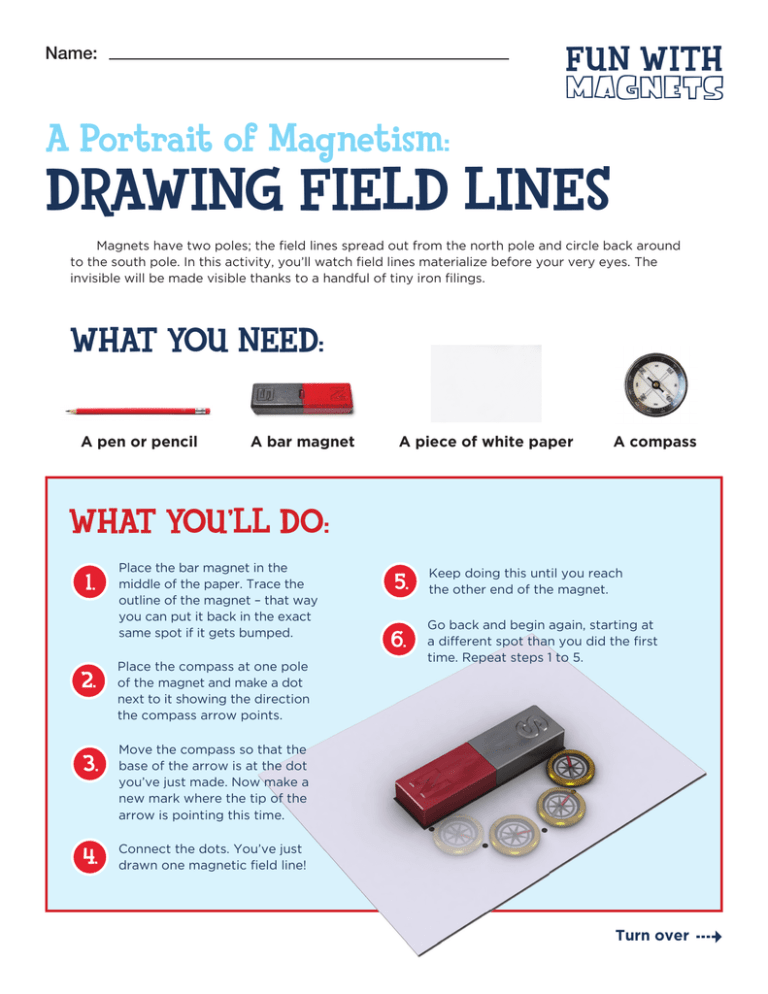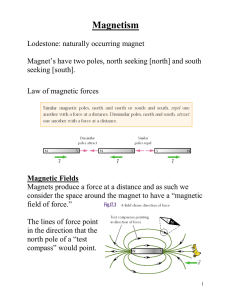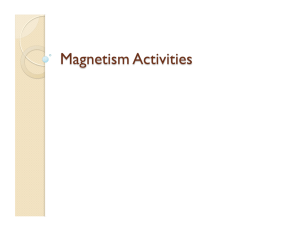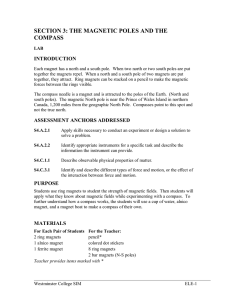Drawing Magnetic Field Lines
advertisement

Name: FUN WITH MAGNETS A Portrait of Magnetism: DRAWING FIELD LINES Magnets have two poles; the field lines spread out from the north pole and circle back around to the south pole. In this activity, you’ll watch field lines materialize before your very eyes. The invisible will be made visible thanks to a handful of tiny iron filings. WHAT YOU NEED: A pen or pencil A bar magnet A piece of white paper A compass WHAT YOU’LL DO: 1. 2. 3. 4. Place the bar magnet in the middle of the paper. Trace the outline of the magnet – that way you can put it back in the exact same spot if it gets bumped. umped. Place the compass at one pole of the magnet and make a dot next to it showing the direction the compass arrow points. 5. Keep doing this until you reach the other end of the magnet. 6. Go back and begin again, starting at a different spot than you did the first time. Repeat steps 1 to 5. Move the compass so that the base of the arrow is at the dot you’ve just made. Now make a new mark where the tip of the arrow is pointing this time. Connect the dots. You’ve just drawn one magnetic field line! Turn over FUN WITH MAGNETS DRAWING FIELD LINES 7. Repeat the process until you have drawn as many lines as you can for both ends of the magnet. You will now have an accurate representation of magnetic field lines. TRY THIS! • Different magnets will give you different field lines. Try repeating these steps with magnets of different sizes and shapes. • You can also “draw” field lines with iron filings, available at most hardware stores. Use the same magnet and paper (with your drawn field lines) from the above activity. Put the magnet back in place under the paper, then sprinkle the filings on top. Tap the paper gently; you should see the filings fall into place along the very same lines you drew. Preserve this discovery for posterity by spraying it with hairspray or acrylic spray! You can also try this as a “virtual” activity. THINK QUICK! Where along your field lines is the magnetic force strongest? Did you know? • Magnetic force decreases as the distance from the magnet increases. • Magnetic force can travel through non-magnetic materials such as air and water. • Compass needles point north and south in response to the Earth’s magnetic field. You can also use them to detect magnetic fields of other objects. Learn more about magnets at: www.magnet.fsu.edu/education ANSWER: The magnetic force is strongest near the poles, where the magnetic field lines come together.



